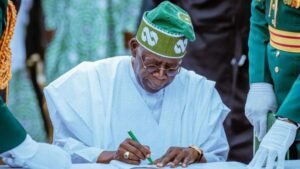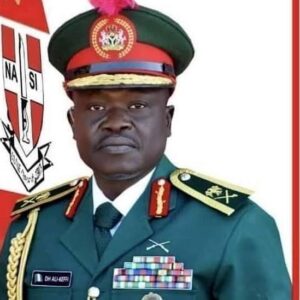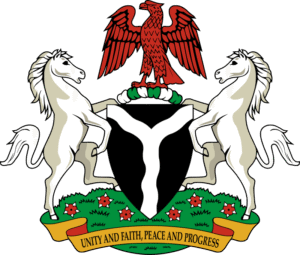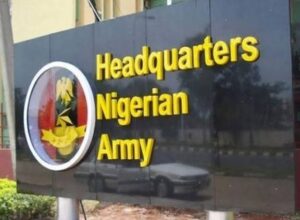Nigeria’s national security architecture was shaken this week after retired Major General Danjuma Ali-Keffi released a detailed letter to President Asiwaju Bola Ahmed Tinubu, alleging systemic sabotage within the military and a dangerous pattern of retaliation against officers who confront terrorism at its financial and political roots.

Ali-Keffi, former General Officer Commanding (GOC) 1 Division of the Nigerian Army, disclosed that after he led a presidentially sanctioned task force — “Operation Service Wide” — that achieved breakthroughs in identifying and apprehending Boko Haram’s central leadership and financial enablers, he was rewarded not with commendation, but with forced retirement, arrest and 64 days in solitary detention.

According to the Major General, the operation uncovered not only top-level Boko Haram commanders but also exposed a deeply protected network of financiers, including senior government officials, military officers and executives within major financial institutions.
“The moment we arrested some of these individuals and started exposing the financial pipelines of terror, the backlash began,” his letter states.

Within days of these arrests, he says, the operation came under pressure from powerful interests who felt threatened by the revelations. Instead of being supported, his team was quietly dismantled and he himself was neutralised through internal administrative action.
Ali-Keffi’s claims also reignited controversy surrounding the 2021 death of Chief of Army Staff Lt. Gen. Ibrahim Attahiru, who died in a plane crash many Nigerians still regard as suspicious. He revealed that Attahiru had approved the work of “Operation Service Wide” and was preparing to move aggressively against terror financiers before his death. He is urging President Tinubu to revisit both the crash and the subsequent suppression of the anti-terror financing drive.

Taken together, the allegations paint a disturbing picture: a security system where those who go after terrorism at the highest levels are punished, while the networks they expose are quietly protected. In such an environment, with the present situation in the Army, nobody is truly safe — within or outside the institution.
The implications go far beyond one officer’s career. They feed into a broader fear that Nigeria’s war against insurgency is being prolonged not by lack of capacity, but by internal betrayal. From the suspicious deaths and ambushes of senior officers, to repeated intelligence failures and unusually precise attacks on troop movements, a pattern is emerging that many Nigerians find too consistent to ignore.

Renewed Calls for the Removal of the NSA and Defence Minister
The uproar surrounding General Uba’s death, the ambushes on troops and the revelations in Ali-Keffi’s letter have intensified nationwide demands for President Bola Tinubu to urgently overhaul his security leadership. Increasingly, Nigerians argue that the current National Security Adviser and Minister of Defence have lost grip of the nation’s security architecture at a time when stability is most critical.

Public frustration has deepened following revelations that the NSA is presently in Washington, attending to issues relating to the Trump-driven “Country of Particular Concern” (CPC) designation, instead of being in Nigeria coordinating the rescue of the 24 kidnapped schoolgirls and directing response operations in Kwara State. To many citizens, this absence symbolises the systemic disconnect and lack of urgency within the nation’s top security hierarchy. At a moment when abducted children need immediate rescue and communities are reeling from fresh attacks, Nigerians insist that the NSA’s place is with the Joint Operations Command — not abroad managing fallout caused by the very insecurity his office failed to contain.

As a result, voices across civil society, military circles and the broader public are demanding the instant sack of both the NSA and the Minister of Defence, with replacement by retired Army Generals of unquestionable integrity, patriotism and operational competence. In their view, only a fresh security leadership, untainted by the current failures and perceived compromises, can rebuild discipline inside the forces, confront insider sabotage and restore confidence that the system is working for the nation — not for hidden interests.

The concern is not symbolic; it is existential. With the current pattern of sabotage, ambushes and leadership lapses, many now believe that nobody is safe — not the ordinary citizen, not serving officers, and not even the President himself. The message to the Commander in Chief is direct and urgent: Nigeria needs a clean, loyal, disciplined security leadership — now, before the situation escalates beyond control.

A War Fought on Two Fronts
Ali-Keffi’s letter has therefore triggered renewed demands for:
A full forensic investigation into “Operation Service Wide”;
An independent probe into Lt. Gen. Attahiru’s death;
A deep audit of terror-financing pipelines;
Identification and prosecution of insiders aiding terrorists;

A disciplined restructuring of the Nigerian Army’s leadership culture;
Clear protections for officers who expose corruption and sabotage.
His testimony is more than a personal grievance — it is a warning that Nigeria is fighting a two-front war: one against Boko Haram and ISWAP in the bush, and another against sabotage, compromise and unpatriotic actors inside the system.
Analysts warn that if these allegations are brushed aside, Nigeria risks sliding into a state where loyalty within the armed forces is fractured and public trust in the military collapses further. That vacuum, they caution, is exactly what creates room for external actors and foreign interests to step in under the pretext of “assistance” or “stabilisation”.
Whether the Tinubu administration chooses to confront these claims head-on or allow them to fade will determine not just the future of one officer’s reputation, but the credibility of Nigeria’s entire fight against terrorism.
The National Patriots.
Headlinenews.news Special report.




